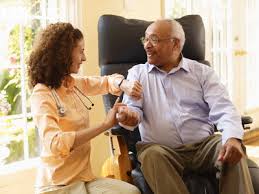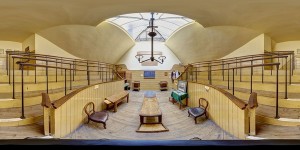
Subject Overview
We aim to deliver Health and Social Care as a worthwhile and enjoyable experience that is taught with passion and enthusiasm; preparing learners to become effective and ambitious professionals in a health and social care environment.
This subject is proving popular at KS4 and KS5 with students going on to study nursing, social work, teaching and midwifery at University. In addition to this students have found this qualification hugely beneficial in entering the care professions.
Key Stage 4
BTEC Award in Health and Social Care – Level 2
BTEC Level 2 qualifications designed to provide specialist work-related qualifications in a range of sectors. They give learners the knowledge, understanding and skills they need to prepare for employment. The qualifications also provide career development opportunities for those who want to go into a variety of Health or Social Care professions.
Students will follow the Edexcel Health and Social Care specification which consists of 3 Components. These components are:
Component 1: Human Lifespan Development [Internal Assessment – coursework]
In this component you will study the areas of growth and development that contribute to the whole person, including physical, intellectual, emotional and social. You will reflect on the physical, social and economic factors that are part of everyone’s life, such as relationships with family, and consider the way that they impact on each area of growth and development.
Component 2: Health and Social Care Services and Values [Internal assessment – coursework]
In this component you will learn about the range of health and social care services (primary, secondary and tertiary), any barriers individuals face accessing them and how they may be overcome.
Component 3: Health and Wellbeing [External exam]
This component develops on knowledge, understanding and skills you have developed whilst studying components 1 and 2, you will need to revisit key elements of these. At the end of the component you will be asked to assess an individual’s health and well-being based on a case study and design a health and wellbeing improvement plan for that individual, under exam conditions. You will be expected to identify any difficulties the individual might face when trying to make the changes that you suggest and think of ways to overcome them.
How Students Are Assessed
Evidence for assessment will be generated through a range of diverse activities including exam (component 3), assignment and project work, case studies, role play and oral presentation (all other components).
A grading scale of L1 Pass, L1 Merit, Level 1 Distinction, Level 2 Pass, Level 2 Merit, Level 2 Distinction and Level 2 Distinction * is awarded overall. Successful completion of all eight units can lead to one GCSE equivalent 1 – 9.
What can I do on completion of this course?
This course leads on to the BTEC Level 3 Certificate in Health and Social Care (or other equivalent courses) depending on grades and eventually to higher education or employment
This qualification is designed to equip you with the knowledge, understanding and practical skills required at an operational level in the care sector.
You will consider the role of care worker, your relationship with, and responsibilities towards, service users and the wider care sector.
Key Stage 5
BTEC National Certificate / Extended Certificate and Diploma in Health and Social Care – Level 3
The health and care sector encompasses staff involved in direct care, as well as specialists such as health scientists, technicians, support staff, supervisors and managers. Job opportunities exist in the statutory, private and voluntary provision of care services. The BTEC Level 3 National Award, Certificates and Diplomas in Health and Social Care can provide a springboard to a university degree or Foundation Degree in an appropriate vocational discipline, to BTEC HNCs and HNDs, or to employment.
This programme provides the perfect platform for you to enter the care profession.
How are you assessed?
It is a practical, work-related course, which will involve a number of projects and assignments that are based on realistic work place situations and activities. It introduces you to the employment areas you may be considering and provides a good basis in which to progress on to a more advanced work-related qualifications.
Assessment
Each unit is assessed by a variety of assignment tasks, both written and practical.
Each unit will be graded PASS, MERIT or DISTINCTION.
In order to gain the full qualification all units must be successfully completed
Examples of units you will study are:
- Developing Effective Communication in Health and Social Care
- Equality, Diversity and Rights in Health and Social Care
- Health, Safety and Security in Health and Social Care
- Development Through the Life Stages
- Anatomy and Physiology for Health and Social Care
- Sociological Perspectives for Health and Social Care
- Psychological Perspectives for Health and Social Care
- Caring for Children and Young People
- Public Health
- Physiological Disorders
Who is the course for?
This course will appeal to those students who:
- Enjoy studying a subject that is relevant to their own lives and experience
- Want the opportunity to carry out practical work as well as class work
- Want to find out more about the subject through personal investigation
- Are interested in developing an understanding of caring organisations and the clients they serve
- Want to study a course that is active and enjoyable
- Want to move onto a related career or higher education course
- Would like to work in the health care sector, teaching, police force, youth work, social work etc.
Key Stage 4 and Key Stage 5
Trips
Trips include visits to St Thomas Hospital – Old Operating Theatre.
Visitors
Sexual Health worker visits
Baby work shop
Virtual babies

Examples of vocational classroom activities
Making play dough for playschool children
Making board games for the elderly
Making fimo/clay figures for various age groups
Planning and undertaking chair aerobics for the elderly
Planning and undertaking a bingo game
Cake decorating with the elderly
